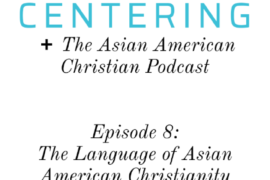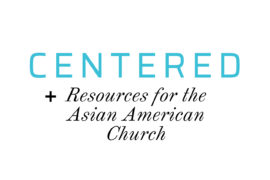
In the fall of 2019, the Yexus Communitas Summit welcomed over 90 Hmong American Christian leaders and pastors to share future vision for our churches. Most of the attendees were 1.5 or 2nd generation Hmong Americans from different denominational backgrounds. Whatever degree of theological diversity was present, our shared refugee and bicultural experiences proved to be a unifier.
Over the course of two and a half days, we sought to spark vision for our local churches in the decades to come. But while our eyes were set toward the future, the lens we wore had been framed by our past. While our feet stretched forward to take the next step, our shoes were torn and frayed from the journey behind us.
God wanted to bring our Hmong American narrative into the tapestry of American Christianity.
In these tensions, I sensed that God wanted to do more than simply move us along on someone else’s narrative. Rather, God wanted to bring our Hmong American narrative into the future tapestry of American Christianity. And this bolder vision required that past wounds and traumas be named and addressed. Otherwise we cannot know what it is that we carry with us to the table.
During the summit, I spoke with Hmong sisters who had been deeply hurt and disempowered by their first generation churches (and by patriarchy, in general). The message they received was that pastoral and ministerial leadership was reserved for men only. I cried with some of these sisters. I apologized to them on behalf of a broken Hmong masculinity.
I spoke with sisters and brothers stuck somewhere in between their parents’ trauma of fleeing war and poverty in Laos/Thailand and their own trauma of being exoticized, emasculated, and marginalized in America. These debilitating forces shaping their American experiences without any names attached to them.
I spoke with brothers and sisters who dream of reconciling with their first generation churches. But they neither possess the hierarchical status to influence those foundations nor the cultural competency to navigate along their plane.
I spoke with those who left their parents’ churches to join worshipping communities of majority culture – a long observed phenomenon with 2nd generation immigrant churchgoers known as the “Silent Exodus.” And I spoke with those who felt spiritually, theologically, and communally malnourished in their parents’ churches, but chose to stay because it was better than wandering the desert and starving.
In all of these conversations, we were like musical strings tuned to the same note. The louder any one string vibrated, the stronger the other strings resonated in response.
[in the story of Moses, Hmong Americans] heard the struggles of their bicultural experiences told from the narrative of Scripture
One night, my good friend Second Yang spoke on Moses’ life as an Israelite raised in Egyptian culture. For some listeners, this was the first time they had heard the struggles of their bicultural experiences told from the narrative of Scripture. Virtually every attendee resonated with Moses’ story – the identity confusion, the angst, the liminal spaces, the hope and the wonder of how God could use any of it for God’s purposes.
Though naturally difficult to name and process these intergenerational, racial, and gender-related traumas, like all people, Hmong Americans need to do this work for the health of God’s multiethnic churches of the future. It is impossible to remedy a physical illness without diagnosing or naming it first. In the same way, we cannot address an emotional, psychological, or spiritual illness without naming it – both individually and communally.
…we cannot address an emotional, psychological, or spiritual illness without naming it – both individually and communally.
So Yexus Communitas provided some of its attendees the opportunity to become more aware of these sites of pain and trauma in their journeys with Jesus. It is my hope that a small event such as this would prompt more articulations of the Hmong American Christian narrative from a variety of voices. I hope the stories I heard in person would be embraced and proclaimed, not cut off and hidden as if God didn’t see it.
Owning our stories is one of the most powerful things we will ever do for ourselves, for those around us, and subsequently for those who come after us. Israel remembers the peaks and valleys of their journey with Yahweh. The Church remembers its traditions and history. So may we embrace our past narratives as they often become our greatest gifts to the future.



Comments are closed.